The Ukrainian-Russian families at conflict over invasion
Estimated 11m people in Russia have Ukrainian relatives – but some ‘don’t believe’ war is even happening
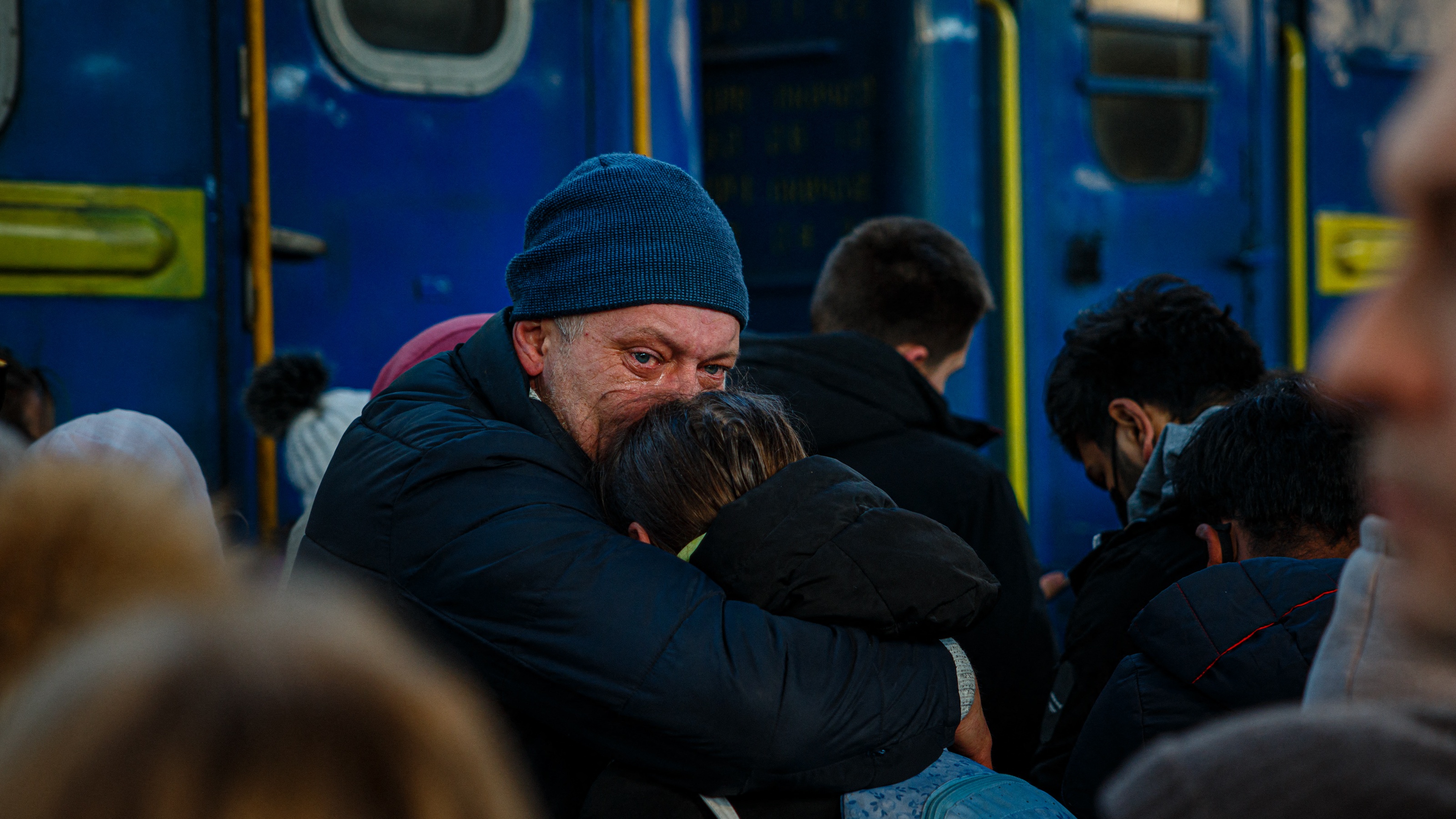
A free daily email with the biggest news stories of the day – and the best features from TheWeek.com
You are now subscribed
Your newsletter sign-up was successful
Many of the millions of people fleeing Ukraine in the wake of the Russian invasion have left behind fathers, brothers and other family members who stayed to fight the enemy forces.
But for some families, the invasion has triggered internal conflict as well as such separations. The New York Times (NYT) reported that many Ukrainians are “encountering a confounding and almost surreal backlash from family members in Russia who have bought into the official Kremlin messaging”.
Some of these Russian relatives “refuse to believe that Russian soldiers could bomb innocent people”, the paper said, “or even that a war is taking place at all”.
The Week
Escape your echo chamber. Get the facts behind the news, plus analysis from multiple perspectives.

Sign up for The Week's Free Newsletters
From our morning news briefing to a weekly Good News Newsletter, get the best of The Week delivered directly to your inbox.
From our morning news briefing to a weekly Good News Newsletter, get the best of The Week delivered directly to your inbox.
‘I won’t speak to my father’
The official Kremlin position is that Vladimir Putin has deployed a “special military operation” to achieve the “demilitarisation and denazification” of Ukraine. But a very different reality is being reported from the beseiged nation, triggered conflicts within families with members or loyalties from both sides of the border.
An estimated 11m people among Russia’s 144m-strong population “have Ukrainian relatives”, the NYT reported. “Many Ukrainian citizens are ethnic Russians, and those living in the southern and eastern parts of the country largely speak Russian as their native language.”
Yuliia Lobodiuchenko, who moved from Ukraine to Italy three years ago, “won’t speak to her father anymore” after he “expressed pro-Putin comments, nostalgia for the Soviet Union and even denial that Moscow is bombing its neighbour”, the i news site reported.
Lobodiuchenko’s parents are divorced and her father now lives in the US, while her mother is still in Kyiv, she told the paper. Yet when she phoned her father after the invasion began, he reportedly replied: “‘What are you talking about? They will just kill some Nazis and military objects and that’s all. Everything will be okay.’”
A free daily email with the biggest news stories of the day – and the best features from TheWeek.com
She said he also told her: “You will just be a part of Russia, how it’s supposed to be.”
“I don’t want to speak to him anymore,” Lobodiuchenko continued. “He tried to call me a few times. He tried to speak like it is political and it doesn’t change anything between us. But my mum and my friends could die. My country could be destroyed.”
A similar picture of families at war was painted by Vasyl Chaplaiev, who now lives in Ukraine but was “born in Russia into a mixed Russian-Ukrainian family in the city once known as Stalingrad”, NPR reported.
Chaplaiev told the Washington D.C.-based broadcaster that his sister, who still lives in Russia, has also accepted the version of events depicted by Moscow’s propaganda machine.
“Two days before the war, what my sister said to me killed me,” he recalled. “She said ‘Putin is awesome’, ‘he's even exceeded her expectations’, ‘you sold out to the United States’, ‘you don’t control your own country’, ‘you are Nazis so we will liberate you’.”
Chaplaiev said that “I feel like now my neighbours, my friends here, are better people for me than my own sister”. As the shelling of Ukrainian cities increased, he sent her a message saying: “Burn in hell all of you, together with your Putin. I don’t wish you anything personally, but your people are bastards.”
Ukrainian restaurateur Misha Katsurin told the NYT that after Russia began dropping artillery shells on Kyiv, he was surprised when his father, a church custodian living in the Russian city of Nizhny Novgorod, failed to contact him.
“There is a war, I’m his son, and he just doesn’t call,” Katsurin said. “I’m trying to evacuate my children and my wife – everything is extremely scary.”
But when Katsurin made contact, his father refused to believe his account of what was going on. “He started to yell at me and told me, ‘Look, everything is going like this. They are Nazis,’” said Katsurin, who has converted his restaurants into volunteer centres.
Yet Katsurin is “not angry” with his father, he insisted.
“I’m angry about the Russian propaganda,” he said. “I’m not angry at these people. I understand that I cannot blame them in this situation.”
‘Revolution to resistance’
Russians perceptions about the conflict in Ukraine are being closely controlled by the country’s state media. According to CNN’s senior media reporter Oliver Darcy, networks such as Russia Today have “brazenly” made efforts to “mislead” their audiences, framing Moscow as the “liberator” of the Ukrainian people and not even “necessarily the aggressor”.
NewsGuard, a US organisation monitoring the trustworthiness of news websites, found that false claims about Russian-speaking residents in Donbas being “subjected to genocide”, and “Polish-speaking saboteurs” attempting to “bomb a chlorine plant in Donbas”, were the most cited justifications for the invasion in the Russian media.
Allegations that “Nazism is rampant in Ukrainian politics and society” were also common.
A poll of 2,000 people across Russia found that almost 60% supported Moscow’s war against Ukraine when Putin gave the green light for the invasion.
Almost 50% of the respondent’s attitudes towards Putin changed for the better after the outbreak of war, with only 23% saying that their attitudes towards the president had got worse, reported independent research group Russian Field, which carried out the survey in partnership with political activist Maxim Katz.
Ukrainian restauranteur Katsurin told the NYT that following his family clash over the war, “the easiest thing to do would be to say, ‘OK, now I don’t have a father’”. But instead, he has founded papapover.com, which translates as “Papa, believe” and is a website giving members of Ukraine’s 44m-strong population advice on how to talk to Russian relatives about the invasion.
“There are 11 million Russians who have relatives in Ukraine,” said Katsurin. “With 11 million people, everything can happen. From revolution to at least some resistance.”
-
 Why is the Trump administration talking about ‘Western civilization’?
Why is the Trump administration talking about ‘Western civilization’?Talking Points Rubio says Europe, US bonded by religion and ancestry
-
 Quentin Deranque: a student’s death energizes the French far right
Quentin Deranque: a student’s death energizes the French far rightIN THE SPOTLIGHT Reactions to the violent killing of an ultraconservative activist offer a glimpse at the culture wars roiling France ahead of next year’s elections
-
 Secured vs. unsecured loans: how do they differ and which is better?
Secured vs. unsecured loans: how do they differ and which is better?the explainer They are distinguished by the level of risk and the inclusion of collateral
-
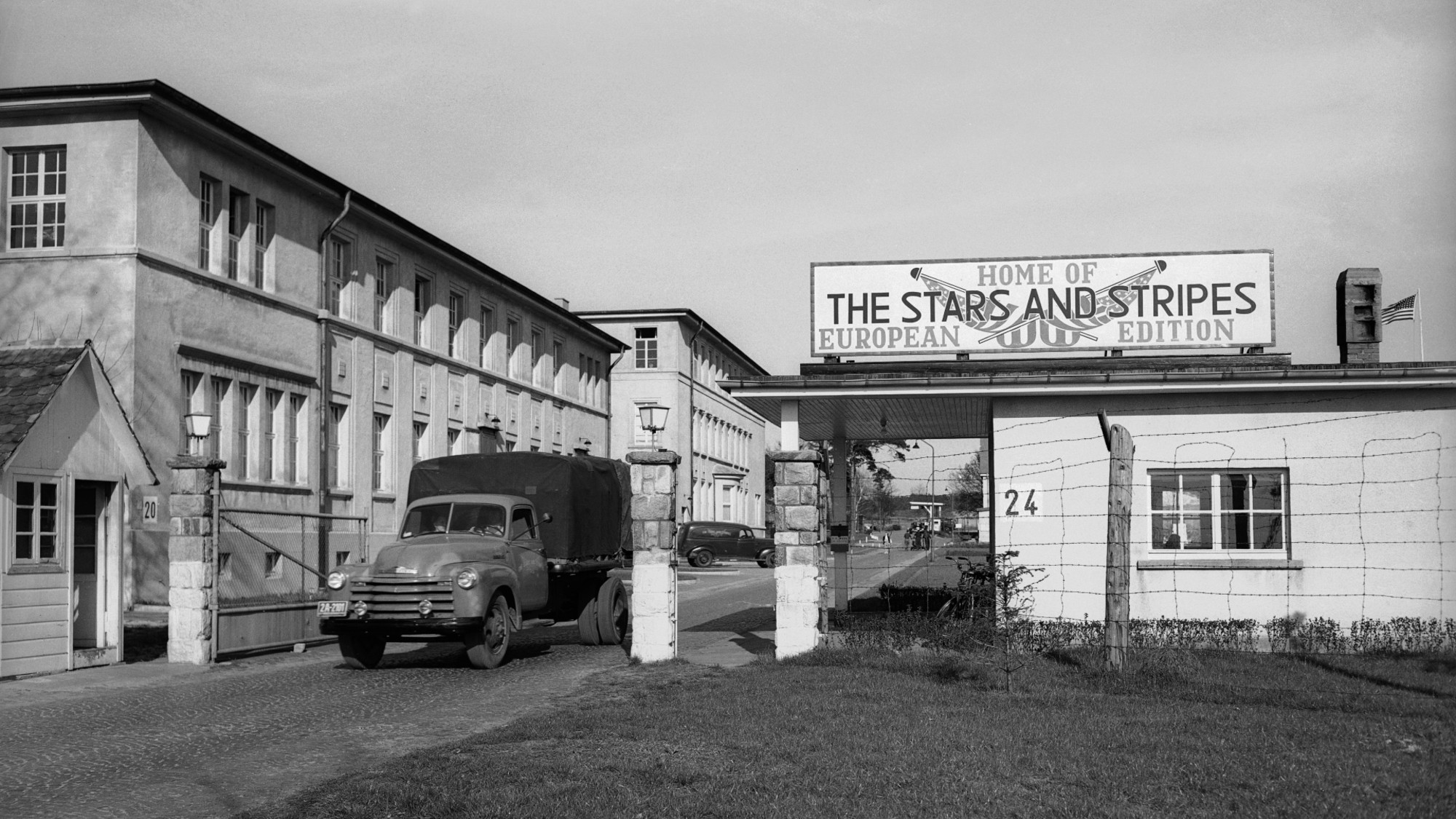 Why is the Pentagon taking over the military’s independent newspaper?
Why is the Pentagon taking over the military’s independent newspaper?Today’s Big Question Stars and Stripes is published by the Defense Department but is editorially independent
-
 The most memorable newspaper front pages of 2022
The most memorable newspaper front pages of 2022In Depth From Uber files and Partygate revelations to Liz Truss’s lettuce face-off
-
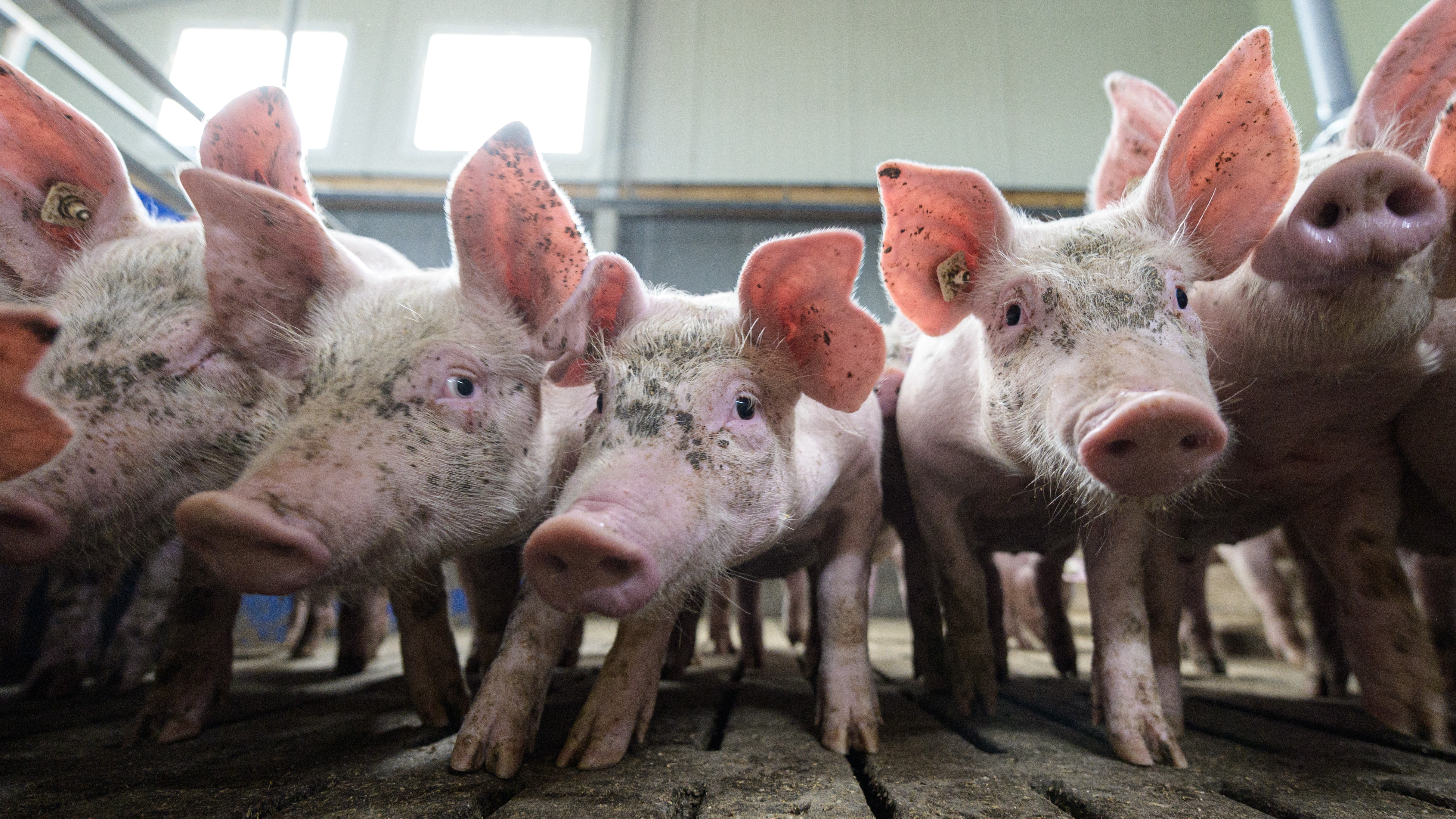 The Week Unwrapped: wheels or doors, Russian losses and speaking pig
The Week Unwrapped: wheels or doors, Russian losses and speaking pigpodcast What makes a social media post go viral? What does the war in Ukraine mean for pensions? And can an algorithm understand a pig’s emotions?
-
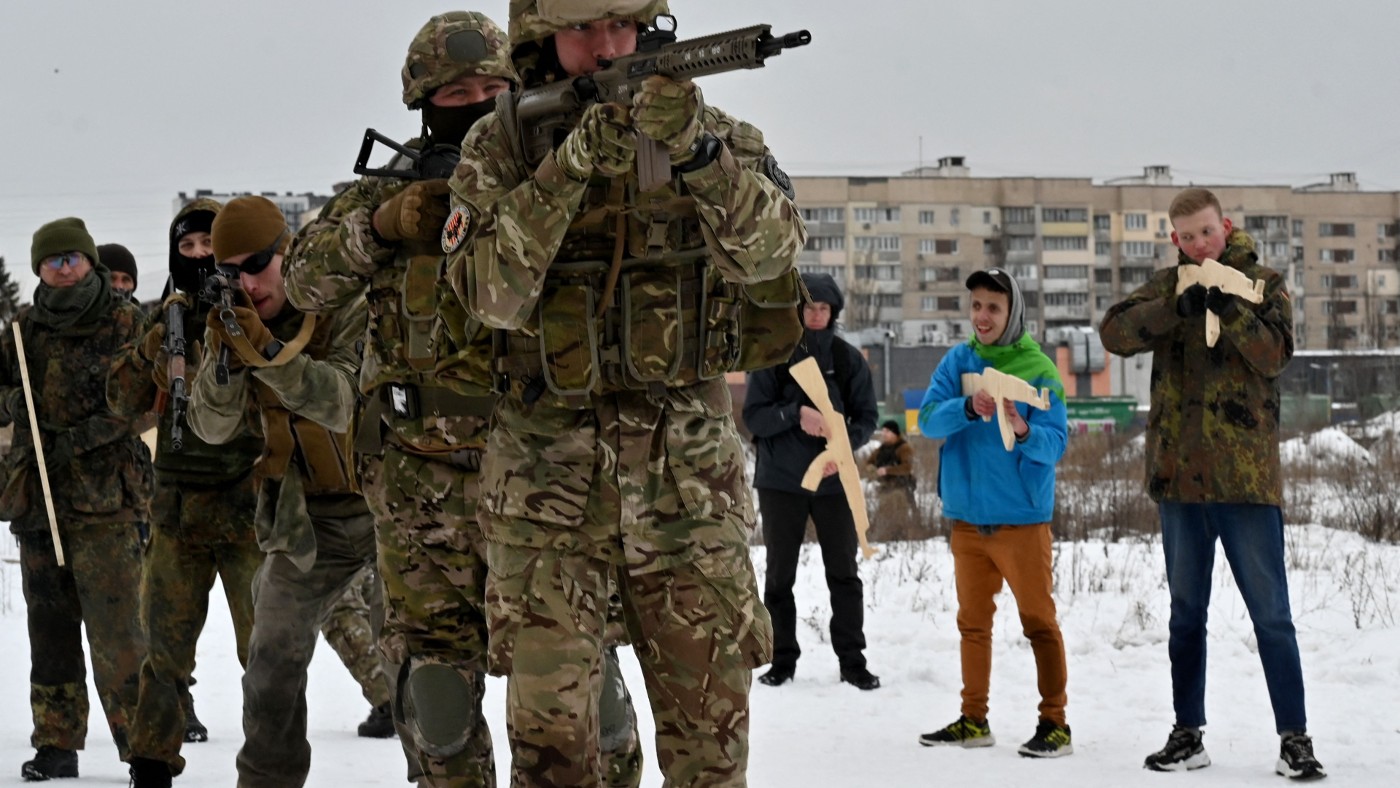 How the world reported the ‘final push’ to avoid war in Ukraine
How the world reported the ‘final push’ to avoid war in Ukrainefeature Western officials warn of imminent conflict while Ukraine sticks to more measured rhetoric
-
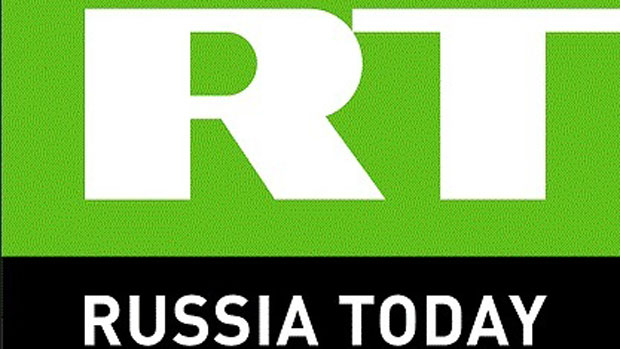 RT: Putin's mouthpiece or a home for alternative voices?
RT: Putin's mouthpiece or a home for alternative voices?In Depth Latest Russia Today journalist quits and accuses channel of 'disrespecting the facts'